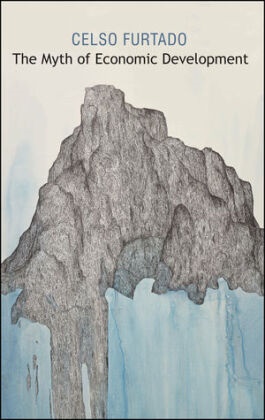Ulteriori informazioni
This classic work remains one of the most incisive contributions to dependency theory in the Latin American context. While agreeing with other dependency theorists that underdevelopment on the Latin America periphery was structurally connected to the accumulation of capital in the advanced economies at the core of the global capitalist system, Furtado went further and argued that the very idea of development in the periphery is a myth, deceiving countries into focusing on narrow economic factors such as the rate of investment and the volume of exports to the detriment of their human well-being. Moreover, the costs of development in terms of environmental destruction would be catastrophic for the planet: the idea that the poor in Latin America and elsewhere might someday enjoy the livelihoods of today's rich people is unrealizable in practice, and any attempt to generalize the lifestyles of the world's well-off would lead to the collapse of civilization. Adhering to the ideas of development and progress is not only misleading: it is also a form of cultural domination that stifles creativity and blocks the imagination of alternative life forms that would be better aligned to the conditions of life in Latin America and elsewhere.
This prescient analysis of economic development and underdevelopment in Latin America retains its relevance today and will be of interest to anyone concerned with issues of political economy and culture in the Global South, as well as students and scholars in political economy, development studies, Latin American Studies and critical theory.
Sommario
Introduction - Ndongo Samba Sylla vi 1 The Prophecy of Collapse 1
2 The Structural Evolution of the Capitalist System 7
3 Large Companies in New Center-Periphery Relations 28
4 Options for Peripheral Countries 46
5 The Myth of Economic Development 55
Notes 64
Index 74
Info autore
Celso Furtado was a major figure of economic thought in the latter half of the twentieth century, who also served as Brazilian Minister of Planning and Minister of Culture and was nominated for the 2004 Nobel Prize.
Riassunto
This classic work remains one of the most incisive contributions to dependency theory in the Latin American context. While agreeing with other dependency theorists that underdevelopment on the Latin America periphery was structurally connected to the accumulation of capital in the advanced economies at the core of the global capitalist system, Furtado went further and argued that the very idea of development in the periphery is a myth, deceiving countries into focusing on narrow economic factors such as the rate of investment and the volume of exports to the detriment of their human well-being. Moreover, the costs of development in terms of environmental destruction would be catastrophic for the planet: the idea that the poor in Latin America and elsewhere might someday enjoy the livelihoods of today's rich people is unrealizable in practice, and any attempt to generalize the lifestyles of the world's well-off would lead to the collapse of civilization. Adhering to the ideas of development and progress is not only misleading: it is also a form of cultural domination that stifles creativity and blocks the imagination of alternative life forms that would be better aligned to the conditions of life in Latin America and elsewhere.
This prescient analysis of economic development and underdevelopment in Latin America retains its relevance today and will be of interest to anyone concerned with issues of political economy and culture in the Global South, as well as students and scholars in political economy, development studies, Latin American Studies and critical theory.
Relazione
"The Latin American 'structuralists' made a Copernican jump in understanding of economic development by taking the closed-system world economy rather than the country as the unit of analysis, and showing 'developed' and 'less developed' to be like Siamese twins. Furtado was a leader of this school, and this short book is an outstanding example of the power of the approach, compared to that of the neoclassical mainstream."
Robert H. Wade, London School of Economics

